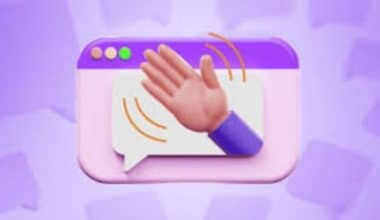When a worker is fired for a good reason, this is called “termination for cause.” An employee can be fired for many reasons, such as bad behavior, fraud, or giving out private information. In this case, “cause” refers to the reason for being fired from a job, which is usually written down in a document like an employment contract or company policy. In this article, we will tell you everything you need to know about a contract termination for cause, some real-life examples, and the reasons that lead to the termination of a letter. Just read on to enjoy the knowledge ride.
What Is Termination for Cause?
Termination for cause means that a worker is let go for good, legal reasons.
In order to be considered “termination for cause,” the reason for leaving the job must be important and valid enough to justify the decision.
For example, if an employee’s behavior at work causes so much worry that the employment relationship needs to end right away (without notice), that would be a valid reason for termination of causes.
Each state has a distinct definition of what constitutes “gross misconduct,” the term used to describe this type of action. But the federal department of labor says that gross misconduct is “an intentional or controllable act or failure to act that shows a deliberate disregard for the employer’s interests.”
Employees can show this kind of unacceptable behavior by what they do at work, how they talk to coworkers or managers, or even how they treat customers.
What is Termination Without Cause?
Given that there is always a justifiable explanation for why a person’s employment is terminated, the phrase “termination without cause” is self-contradictory. These situations may arise if the company is unable to satisfy the budget allocation for all of its employees, is reorganizing its operations, or is reducing its workforce.
When an employee is fired for cause, the company has the right to withhold some benefits from the remaining employees. Additionally, the employer is not required to provide any kind of notice period prior to the termination of employment, nor is the company required to compensate the employee in any way for this. When an employee’s employment is terminated without cause, a usual course of action is to either provide a time limit within which the termination will take place or pay an equivalent sum of money proportionate to the length of the time frame. According to the policy of company, terminated workers who were not given a reason for their dismissal are also eligible for severance pay.
What Do You Say to Terminating an Employee for a Cause?
You need just explain to them the reasoning behind your decision; you should not air your concerns. It could be useful to make a passing reference to the policy that was violated by their behavior. Keep in mind that this is a business decision and not a personal one. It is appropriate to break the news to the employee right at the beginning of the meeting that they will be fired.
What Does for Cause Mean Legally?
Employment can only be terminated without any future duties being owed by the employer under a set of criteria that are typically outlined in an employment agreement. This type of employment is known as “at-will employment.” Although the reasons for termination might vary, some of the possible reasons include the following: Misconduct on the part of the employee that was deliberate.
Is it Hard to Prove Termination with a Cause?
The truth is that it is incredibly challenging to terminate an employee for reason, as this course of action is typically reserved for employees who have committed the most serious offenses in the workplace. The following must be demonstrated by the employer in order to properly prove a valid termination for a cause: That the employee participated in misbehavior with malice.
Does HR Need to be Present During a Termination?
A representative from the HR department ought to be present for the actual firing of the employee. It is possible that the representative may explain to the fired worker the grounds for their dismissal, but it is also possible that a supervisor will do so while the HR representative takes notes and watches. Human resources (HR) are supposed to act as an impartial third party.
What Are the Main Reasons That Lead to Termination With Cause?
Here are the main reasons why an employer has “cause” to fire an employee:
#1. Gross Misconduct
This is a deliberate, unacceptable action by an employee that doesn’t belong in the workplace. It can put the person in danger or even hurt the organization’s reputation. Most companies have a set of rules about how employees should act that they give to new hires. The policy also says what will happen if you don’t follow the code of conduct. The most frequent consequence of improper behavior at work is termination. There are many ways to behave badly at work, and we describe most of them in the HR policy manual.
#2. Theft of Company Resources
This is one of the most common ways in which an employee does something wrong. Some employees may ignore the code of conduct and steal from their employers from time to time. Theft occurs when an employee takes property from a company that doesn’t belong to them. Theft can also happen by using company resources for personal gain, doing work that has nothing to do with the company while on the job, or using corporation patents, trademarks, logos, or other intellectual property without permission.
#3. Inappropriate Relationships
To protect the reputation of the company and ensure everyone’s safety, we should keep relationships at work strictly professional. A romantic relationship at work can be viewed as sexual harassment and hurt the company’s reputation. Also, the people in question might treat other employees unfairly and favor the one with whom they have a romantic relationship, which could cause problems at work.
#4. Breach of Confidentiality
Every business has information that all employees should keep safe. It is important that employees understand why they should not disclose information of this nature and the consequences that will result from doing so. It is corporations that don’t tell other people about their clients. In a place like a hospital, for example, it is the job of the staff to keep the patient’s information safe. Misconduct on the part of an employee is when he or she doesn’t follow these rules.
#5. Gross Insubordination
Some things at work can seem like fun, but if you do them too often, they can lead to disobedience. Some termination for cause examples of such actions are when an employee extends their leave on their own, misses work without telling anyone, talks rudely to their boss, doesn’t give information when asked, or insults other employees.
#6. Alcohol/drug-related Misconduct
Many companies have a rule that says employees can’t drink or use drugs. People who use drugs might not be able to make good decisions, which could affect their work or put their customers in danger. When an employee fails a drug and/or alcohol test, they can be fired for cause.
#7. Conviction for an Offense
It is possible for an employee to damage their employer’s faith in them when they do an inappropriate act with it. The employee may be let go immediately if the employer’s contractual agreement specifies that earlier charges will result in termination.
#8. Serious Breach of Safety Rules
A person who puts himself, other people, or the company in danger on purpose can be fired for a cause. Take the case of a high school teacher who ignores red lights and puts the lives of children at risk. Even if the driver doesn’t get into trouble, I can still fire him for putting himself and the kids in danger.
#9. Incompetence
Every company has its own goals and aims that employees should try to reach. I showed incompetence when an employee consistently doesn’t meet the goals set for them, stays indifferent, or doesn’t do anything to improve their performance. When an employee has disobeyed orders over and over and still hasn’t met the standards, I can fire them with cause.
#10. Bankruptcy
Some companies want their employees to be good with money so they don’t go bankrupt. This is especially true if the employee works with the company’s money. Depending on the company’s policies, if an employee is found to be bankrupt, the employer may have legal grounds to fire the employee for the cause.
#11. Bribery
Receiving or giving a bribe in exchange for a service or product is illegal. Most companies have a policy about integrity that every employee must follow. If an employee takes against company policy and takes any kind of gift from a client, it will hurt the company’s reputation and create a conflict of interest. This is a good enough reason to fire someone with cause.
Termination for Cause Examples
In this section, we will consider some life examples of termination for cause.
Example 1
A man came to work with what his coworkers thought was a gun hidden in a brown paper bag. He showed the gun to everyone at work before putting it in his locker. They told their boss and the people in charge of human resources about their worries.
I forbid workplaces from having firearms or other weapons. An employment law attorney had checked this policy out for their state. The gun was also on company property, and the man’s actions made his coworkers feel like they were in danger. HR called the police, and the man and the gun were taken away. In the end, they charged the man with the gun with having a gun without permission. Because of this, he lost his job.
Example 2
At a trade show booth, two possible customers asked for an employee by name and said that he was a vice president of the company. The problem is that the man was a company manager who used the title of vice president to make himself look more important than he was. When the company found out about his lie, he has fired right away for pretending to be an officer of the company when he wasn’t.
Example 3
The IT department of the company started to notice that even a young worker had completely changed his cubicle and made it so that no other worker could see his computer screen. They didn’t understand why he had changed it, so they looked at his computer.
They found that he spent the whole day in his cubicle watching pornographic movies instead of working. I kicked him out. What was so funny and so telling of his youth? The morning after I fired him, he called his HR director to ask for help in order to update his resume.
Termination for Cause Letter
The company’s financial line, productivity, and reputation are all employees who fail to meet their responsibilities. A letter of termination for cause explains why the employer made the choice and what the company plans to do in the future to fix the problem.
Format and Content
Most of the time, a manager in the human resources department, the employee’s manager, or the owner of the company writes a letter of termination for cause. Before you send it, you should have someone who knows a lot about employment law look it over. The format for a termination letter for a cause can list the details of the violation(s), as long as the company has written proof to back up the claims. If not, the termination for cause letter should follow a standard “at-will” termination format to avoid liability issues related to wrongful termination.
Do You Get Paid for Unfair Dismissal?
If an employee successfully sues their employer for wrongful termination, the employer may be required to pay significant compensation. The sum will be determined by taking into account what is fair and just based on the losses that have been incurred as a result of the termination. Nevertheless, in most cases, a statutory limitation will apply to place a limit on the total amount that the employer could be required to pay.
Does HR Need to be Present During a Termination?
A representative from the HR department ought to be present for the actual firing of the employee. It is possible that the representative may explain to the fired worker the grounds for their dismissal, but it is also possible that a supervisor will do so while the HR representative takes notes and watches. Human resources (HR) are supposed to act as an impartial third party.
What am I Entitled to if I Get Dismissed?
The individual who has been fired should, in most circumstances, be entitled to the same remuneration that they would ordinarily receive if they worked out their notice period. The worker’s final salary could be different from their typical pay period (monthly or weekly), depending on factors such as the number of vacation days they took during their employment. There will be a deduction made for educational opportunities.
Contract Termination for Cause
Unfortunately, not every contract that a small business owner writes will still be interesting or useful to everyone. In situations like these, it is of the utmost importance to know how to end a contract termination for cause successfully.
But when should you try to get out of your termination for cause contract, and what are some of the most common reasons why you might want to do so?
Even though everyone’s situation is different, here are some reasons to break a contract termination for a cause:
#1. An Impossibility of Performance
Sometimes a contract ends because one of the people involved can’t do what they agreed to do. Among the examples of termination for cause is that it’s possible to terminate the contract of an independent contractor if they recently went into the hospital due to a serious sickness. Uncontrollable events can also cause both parties to break a contract.
#2. Termination by Mutual Agreement
If you and the other person who signed the contract concur that it is no longer operating or useful for the two of you, you can end the contract by agreeing to do so. This is often one of the best ways to end a service agreement.
#3. Termination by Breach of Contract
When written correctly as well as thoroughly, a contract gives both parties a full list of their responsibilities. It is possible to terminate the agreement if one of the parties to the contract does not fulfill its obligations. Make sure you can exit the contract if the other side doesn’t perform.
#4. Termination by Rescission
It is possible for someone to lie about themselves or the investments or services that are part of the contract, either on purpose or by accident. When this happens, you can get out of the contract because the people who signed it didn’t really show how powerful they were.
Who Is Eligible for Unemployment Benefits?
Not every person who is out of work can get unemployment benefits. It’s no surprise that there are a lot of rules about who can get it, but in general, a person’s eligibility depends on why they were fired.
To be eligible, a person must be out of work due to things they couldn’t change. Some termination for cause examples are layoffs, downsizing, not having enough work, or furloughs, like those caused by COVID-19. They must also meet requirements for work and pay, as well as any other requirements set by their state.
FAQs
What are the four types of termination?
Involuntary termination, Voluntary termination, Wrongful termination, End of the work contract, or temporary employment.
Can an employee be terminated without notice?
If the worker did something wrong, the employer does not have to give notice. But in this case, I should give the employee a chance to explain the charge against them before I fired them.
Can terminated employee be rehired?
You can get hired back after being fired, but a lot depends on why you were fired in the first place.






